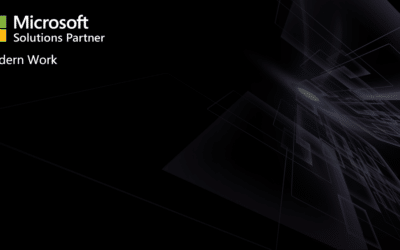Let’s be honest: most IT FAQs sound like they were written by someone who just discovered ChatGPT. Bland, vague, and outdated by about a decade.
Not this one.
We created this guide to walk you through the real, current IT questions small and mid-sized businesses are asking right now – offering clarity, actionable tips, and a whole lot of expert insight.
Let’s dive in.
1. What does an IT support company actually do?
Short answer? We make sure your tech doesn’t implode.
Longer answer: An IT support company (like Techvera) handles all the moving parts of your business’s technology so your team can actually focus on doing their jobs, not chasing down lost files or restarting frozen laptops.
That includes everything from setting up and maintaining hardware and software to managing data backups, troubleshooting pesky login issues, and keeping your systems protected against cybersecurity threats. We’re also the ones who help when someone clicks on that suspicious email (again).
Think of us as your outsourced IT department — ready to handle the messy, complex, fast-moving world of tech so you don’t have to.
???? Explore our Managed IT Services
2. What’s the difference between break/fix and managed IT services?
It all comes down to one thing – break/fix is reactive, managed services are proactive.
If you’re using a break/fix model, you’re calling IT only after something breaks and paying by the hour for repairs. But with managed services, you pay a flat monthly fee to have your systems constantly monitored, updated, and secured. That means problems are spotted and fixed before they disrupt your day (or your bottom line).
This proactive model isn’t just more efficient – it’s scalable. As your business grows, your IT strategy should grow with it. Break/fix models don’t offer that kind of support or foresight. Managed services do.
3. Do small and mid-sized businesses really need IT support?
Yes – and arguably, SMBs need IT support more than large enterprises do.
Why? Because you’re just as vulnerable to cyberattacks but have fewer resources to bounce back. In fact, 43% of all cyberattacks target small and mid-sized businesses, according to Verizon’s DBIR. Attackers know SMBs are less likely to have strong defenses in place.
If you store customer data, use cloud software, or rely on email for communication, you’re already exposed. And without proper support, the fallout from a breach or system failure can be devastating.
Professional IT support helps you stay secure, productive, and ahead of problems, instead of constantly reacting to them.
4. How much does IT support cost?
There’s no one-size-fits-all answer, but here’s a rough guide:
- Break/fix services typically range from $100 to $250 per hour, depending on complexity and urgency.
- Managed services are usually priced per user, per month – anywhere from $100 to $300 depending on your coverage. That often includes helpdesk support, monitoring, security, backups, and strategic consulting.
While hourly support might look cheaper on the surface, the real cost comes from downtime. For many businesses, every minute offline equals lost revenue, delayed projects, and unhappy customers. Managed IT services are designed to prevent that.
Wondering what it would cost to outsource your IT? Techvera’s pricing calculator can give you an estimate for your specific circumstances.
5. What is an MSP, exactly?
MSP stands for Managed Service Provider. In plain terms, it’s a company that takes over responsibility for your IT, from maintenance and monitoring to strategy and support.
When you work with an MSP like Techvera, you’re getting a team that acts as your dedicated IT partner. We handle everything behind the scenes: patching software, monitoring for threats, providing helpdesk support, and advising on tech decisions that impact your business goals.
This model works especially well for companies that don’t have in-house IT or whose current staff are overwhelmed. It’s a scalable, strategic way to manage technology without building an internal department from scratch.
6. What kind of cybersecurity protection do I need?
Each business has different cybersecurity needs, but there are a few non-negotiables every SMB should have in place:
- A strong firewall
- Antivirus or endpoint protection
- Multi-factor authentication (MFA)
- Email filtering to catch phishing and spam
- Regular cybersecurity training for employees
According to IBM, the average cost of a data breach is $4.45 million – a figure that should make any business owner think twice about treating security as optional. The right protections don’t just reduce risk – they demonstrate that you take customer trust seriously.
???? See how we help companies stay secure
7. What happens if my systems go down?
When your systems go offline, the consequences pile up fast. Productivity screeches to a halt. Customers can’t reach you. Critical data may be lost, sometimes permanently. And the longer it takes to recover, the bigger the impact.
That’s why disaster recovery planning is part of every managed IT service we offer. We ensure backups are frequent, redundant, and tested — both onsite and in the cloud. We implement failover systems that kick in automatically when things go south. And we work with you to define recovery time objectives (RTOs), so everyone knows how fast you’ll be back online in a worst-case scenario.
If your plan currently starts and ends with “try turning it off and on again,” let’s talk.
8. How do I know if my current IT provider is doing a good job?
Start by asking yourself a few key questions:
- Are they responsive when issues arise?
- Do they proactively prevent problems, or just fix them after the fact?
- Do you feel confident about your cybersecurity?
- Are they helping you plan for future growth, not just today’s fires?
- And finally, do they speak tech and business fluently?
If any of those answers give you pause, it might be time to explore your options. (We offer free IT assessments if you’re curious.)
9. Can IT support help with remote work?
Absolutely. In fact, supporting remote and hybrid teams has become one of the most important roles of modern IT providers.
We help businesses create secure remote access using VPNs or cloud platforms, manage devices outside the office, and ensure collaboration tools like Microsoft 365 and Google Workspace are fully optimized.
We also offer remote helpdesk support, so when someone’s laptop crashes at home, we can fix it without anyone having to ship it back or wait for hours.
With the right setup, remote work doesn’t have to mean risky work.
10. What makes Techvera different from other IT providers?
A lot of IT companies can fix broken stuff. That’s not the hard part.
What sets Techvera apart is our commitment to proactive support, long-term strategy, and clear communication. We work closely with clients to minimize downtime, boost cybersecurity, and streamline workflows, all while building systems that grow with your business.
And perhaps most importantly: we talk like humans. No fear tactics. No unnecessary jargon. Just honest advice and responsive support that makes sense.
???? See what our past and current clients have to say about working with us
Still have questions?
That’s great. It means you care about making smart choices for your business – and so do we.
Reach out for a free consultation, or explore more of our free resources:



